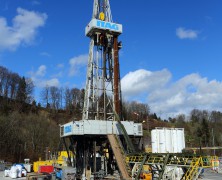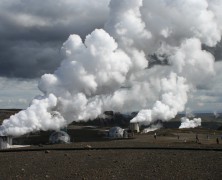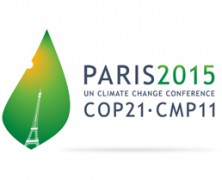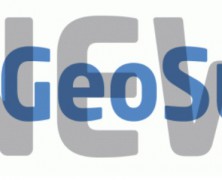PRESS RELEASE Bern, 3 March 2017 – the Federal Council (the 7-member government of Switzerland) stated its position on the use of the subsurface by hydraulic fracturing (fracking). The application of the technology should in general be possible under certain conditions, in particular when associated with drillings to extract geothermal heat from great depths. However, the Federal Council does not support the development of natural gas reserves by hydraulic fracturing due to Switzerland’s climate policy. At the same time, the Federal Council sees no reason for a moratorium. Swisstopo, Switzerland’s geological survey, will follow the acquisition and valorisation of these geological underground data. The link to this press release is (French, Italian and German):...
Good legal framework for deep geothermal energy in Switzerland
posted by EuroGeoSurveys
PRESS RELEASE Bern, 3 March 2017 – the Federal Council (the 7-member government of Switzerland) has approved the report «Conceptual development and implementation of policies in support of the utilisation of (deep) geothermal resources in Switzerland». The report essentially shows that geothermal energy can make an important contribution to the security of energy supply in Switzerland. The first set of measures related to Switzerland’s energy strategy 2050, approved by Parliament on 30 September 2016, encompasses policies that will better enable the realisation of the potential by way of technology development, research and innovation. Swisstopo, Switzerland’s geological survey, will play a fundamental role in collected data from the recipients of financial contributions for exploration, storage and make them public available. The next 21 May 2017 the Swiss are called to vote. The link to this press release is (French, Italian and German):...
The role of CCS (Carbon dioxide Capture and Storage) in mitigating climate change
posted by EuroGeoSurveys
The ambition of the European Union is to deliver a secure, competitive and sustainable energy system, while reducing GHG emissions by at least 40% by 2030 on 1990 levels. The European Strategic Energy Plan (SET plan) aims to accelerate the development and deployment of low carbon technologies and recognizes CCS as an important mitigation technology. The wide-scale deployment and transfer of carbon dioxide capture, transport and storage (CCS) is recognized by the UNFCCC as an environmentally sound technology; as well as by the International Energy Agency (IEA) as a major opportunity for cost–effectively reducing global emissions. For large-scale emissions to be managed adequately within the time frames required, CCS must be allowed to play its crucial role in the decarbonisation of the energy and industrial sectors. CO2GeoNet – The European Network of Excellence on the Geological Storage of CO2, joins together 26 partners from 19 European countries, ranging from national geological surveys, through to research institutes and universities, all with a high international profile and critical mass in CO2 geological storage research. CO2GeoNet is contributing, in collaboration with other international organisations, to side-events and booths at COP21. EuroGeoSurveys is co-organizer together with the European Energy Research Alliance and the Global CCS Institute of the side event “The role of CCS in mitigating climate change” that will be held at the EU Pavillon, room Luxembourg at 10:15-11:00 o’clock. Key players from research organisations, major CCS knowledge networks and initiatives as well as key policy makers in Europe will discuss with the audience the status and way forward for CCS as part of Europe’s low carbon future. The role of CCS in mitigating climate change 10:15-11:00 (EU Pavillon, room...
Unconventional hydrocarbons (UHC) – The Polish experience in the European dimension
posted by EuroGeoSurveys
The conference “Unconventional hydrocarbons (UHC) – The Polish experience in the European dimension”, organized by the Polish Geological Institute, focused on providing experts with insights and analysis about the Polish experience with Unconventional hydrocarbons and how this experience may help to provide valuable direction for the future of the Energy Union. Mr. Verbruggen, President of EuroGeoSurveys (The Geological Surveys of Europe) and Director of the Geological Survey of Ireland, was invited to be part of the High Level Panel of speakers at event. During its presentation, Mr. Verbruggen presented EuroGeoSurveys and its field of action, geosciences research, highlighting how EGS provides unbiased scientific advice to support EU policy makers and society at large. The estimation of shale gas resources in Europe still varies to a large degree since there are no production experiences and very limited exploration, leading to large uncertainties. This is the reason why the EU needs consistent pan-EU data sets and uniform estimation principles. A new EGS project “EUOGA”, in collaboration with the Join Research Centre (JRC) of the European Commission, led by GEUS and TNO, has the aim to mainly fill these “data gaps” by providing a comprehensive overview of current knowledge on Shale Gas potential areas in EU/EGS member countries. The project will develop a database for further collaboration and research. Mr. Brodzinski, Under-Secretary of State and Chief National Geologist of the Ministry of Environment of Poland, gave a talk about UHC in Poland. By producing UHC, viable alternative for imported energy carriers, Poland is improving the country’s energy security and fostering the economic growth, competitiveness and energy efficiency. According to scientific research, it has been demonstrated that UHC are considered as viable alternative for Poland because they are environment-friendly source of energy, potentially feasible, and enhance energy security....
How to shape EU Energy Policy so as to boost European Competitiveness?
posted by EuroGeoSurveys
Successful participation of EuroGeoSurveys (EGS) to the High Level Conference on “How to shape EU Energy Policy so as to boost European Competitiveness?” that took place the 17th November 2014 at the European Commission. The EU Energy Union is shaped in such a way as to guarantee, not only security of supply for all consumers, but also stable and affordable energy prices for European businesses. The main political decision-makers and industry CEOs together high-level representatives of national and European institutions, research centers, academics and civil society discussed all the crucial and sensitive components of an EU Energy Union that is able to contribute to boosting European industrial competitiveness: economic, financial and technological conditions required to develop renewable energy and other domestic energy resources in order to reduce European dependence on third-country suppliers; development of infrastructure and internal as well as cross-border interconnections; overhaul of national practices on energy levies, tax components of energy prices and network costs; completion and improvement of the functioning of the EU internal energy market; moderation of energy demand and increase of energy efficiency; adjustment of the EU emissions trading system (ETS); diversification of suppliers and supply routes; etc. In this framework, Mr. Mart van Bracht (EGS President) was invited to explain the situation in Europe on the availability conventional and unconventional fossil fuel resources to reduce EU external dependence and prevent disruptions of energy supply. Mr. Mart van Bracht highlighted that unfortunately there is no detailed pan-European and unambiguous information about sub-surface energy resources, but a really very cautious estimate, based on information and know-how available at present, indicates that reserves of unconventional resources equals the decrease of conventional natural gas reserves and resources in Europe. Europe can still supply a serious part of its energy needs by...





